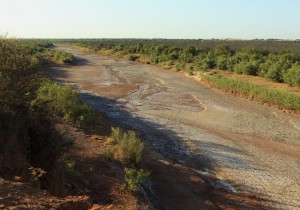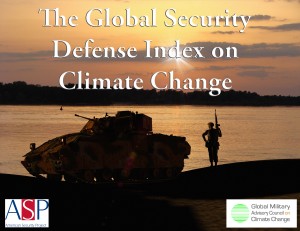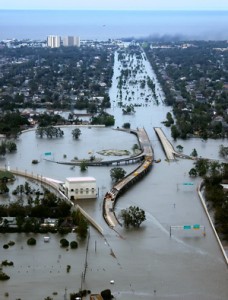In the just-released Pew Research Center’s Global Attitudes Project 2013 Spring Survey, climate change and international financial instability ranked as the top global threats, according to survey responses in thirty-nine countries. The project interviewed over 37,000 individuals from around the world, asking them how much of a threat they considered various global issues such as the rise of China, a nuclear Iran, and climate change.
Even though polling is difficult, it is surprising how varied the perception of threat is among countries, as stated in this survey. There is certainly not a global consensus about threats, and it is important to note that these results are solely from one survey.
The populations of thirty-nine countries identified climate change as the top threat to their country. Just below climate change, fifty-two percent of respondent found that international financial instability was a major threat, with Islamic extremist groups rounding out the top three with forty-nine percent of respondents identifying that as a major threat.
 In every Latin American state surveyed, the majority of respondents in each country identified global climate change as their top major threat. About three out of every four Brazilians and Argentinians interviewed reported climate change as a major threat. Considering the significant recent droughts and other climate problems that plague the Amazon River Basin, these responses are not surprising.
In every Latin American state surveyed, the majority of respondents in each country identified global climate change as their top major threat. About three out of every four Brazilians and Argentinians interviewed reported climate change as a major threat. Considering the significant recent droughts and other climate problems that plague the Amazon River Basin, these responses are not surprising.
More surprising, however, is that of the bottom five countries where global climate change is viewed the least as a major threat, four are located in the greater Middle East region (Jordan, Israel, Egypt, and Pakistan). Only fifteen percent of respondents in Pakistan viewed climate change as a threat, yet the country suffered from massive flooding in 2010 that displaced upwards of twenty million people. Furthermore, Pakistan’s government views climate change as a national security concern, according to ASP’s Global Security Defense Index.
In addition, current tension between Egypt and Ethiopia over water security and the Nile River should warrant a higher response that climate change is a major threat, even though only sixteen percent of Egyptians responded so.
Understandably, however, the MENA region placed issues such as Islamic extremist groups and Iran’s nuclear program at a higher threat level than global climate change, with the exceptions of Lebanon and Turkey, where 74% and 47% of respondents respectively stated global climate change as their largest threat.
Lastly, the United States ranked in the bottom ten of countries considering global climate change a major threat, with only forty percent of respondents agreeing. These results come at a time when climate change has been identified as a national security threat according to the Obama administration’s “National Security Strategy” and when efforts to combat climate change are a stated priority of President Obama’s second term. The survey however showed that North Korea’s and Iran’s nuclear programs, Islamic extremist groups, China’s rise in power, and international financial instability all rank higher as major threats in the eyes of Americans.
 Unlike those other issues, for which there is bipartisan agreement on the threat, climate change is an area of contention between the two parties. Leadership matters on this issue: and America’s political class on both sides has abdicated leadership for decades. That divide certainly has led to some of the low ranking.
Unlike those other issues, for which there is bipartisan agreement on the threat, climate change is an area of contention between the two parties. Leadership matters on this issue: and America’s political class on both sides has abdicated leadership for decades. That divide certainly has led to some of the low ranking.
It is apparent from the Pew Research Center’s Spring Survey that the United States lags behind in prioritizing global climate change a major threat. With President Obama’s recent climate change plan rollout, this issue may increase in importance for the American public. The American Security Project understands that climate change is a national security threat- and it is time for action. Public opinion is a lagging indicator: and people will be angry when farmers can no longer water their crops or when our greatest cities are under water. Sometimes national security goes beyond polling.
To read more about ASP’s work on the link between climate change and national security, click here.


